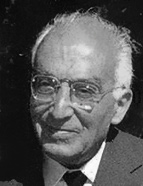

Salvador Dias Arnaut was born in Penela in 1913. He spent his childhood in his hometown. After completing primary school, he moved to Coimbra , where he completed his secondary school studies at the José Falcão school. G randson and son of pharmacists, he enrolled in the Medicine programme, which he completed at the age of 27 in 1940. He then began working as a physician, first in Penela and then in Coimbra, and as a lecturer at the Rainha Santa Isabel Nursing School. However, the appeal of literature was very strong, which led the young doctor to successfully study Historical-Philosophical Sciences at the School of Arts and Humanities of the University of Coimbra. He graduated in 1947 with 18 points out of 20, which qualified him to become a university lecturer. He began his academic career in 1952 and took his doctoral exams on 9 December 1960, obtaining a grade of 19. The following year, he became First Assistant Professor. In January 1965, together with Dr Avelino de Jesus Costa, he received the doctoral insignia. After four years, he applied to become an Extraordinary Professor, rising to the rank of Full Professor in 1971. He retired in 1983/84 but continued to teach master ’ s seminars almost until the end of his life (1995). His academic career was characterised by great dedication to the School of Arts and Humanities of the University of Coimbra, where he held various positions: Director of the Institute of Overseas History (1965-1974) , the Institute for the History of Expansion and Colonialism (1978-1984) , the Institute of Palaeography (1983-1984); Chairman of the Scientific Committee of the History Group (1978-1984). He was also deputy D irector of the School of Arts and Humanities between 1971 and 1974, a position which led to his painful departure from the institution between 1974 and 1978. He was a member of the Academia Portuguesa da História [Portuguese Academy of History], the Associação dos Arqueólogos Portugueses [Association of Portuguese Archaelogists], and an emeritus member of the Sociedade Portuguesa de Estudos Medievais [Portuguese Society for Medieval Studies].
This work is financed by national funds through FCT - Foundation for Science and Technology, I.P, in the scope of the projects UIDB/04311/2020 and UIDP/04311/2020.
